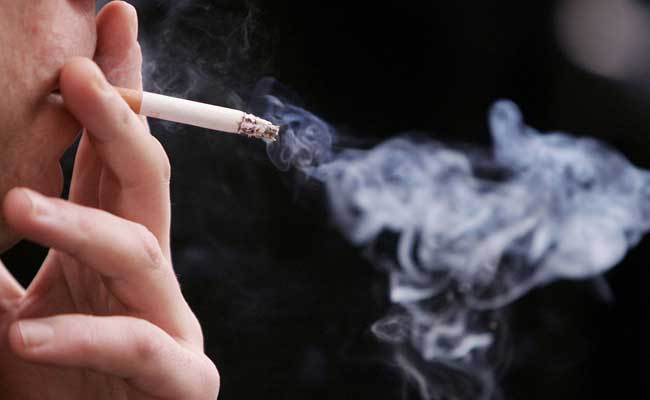R (on the application of Black) (Appellant) v Secretary of State for Justice (Respondent)
Justices: Lady Hale (President), Lord Mance (Deputy President), Lord Kerr, Lord Hughes, Lord Lloyd-Jones
Background to the Appeal
The issue in this appeal is whether the Crown is bound by the prohibition of smoking in most enclosed public places and workplaces (‘the smoking ban’), contained in Chapter 1 of Part 1 of the Health Act 2006 (‘the Act’). The issue affects all those residing in, employed to work at or visiting any Crown premises, including prisons.
Mr Black is serving an indeterminate sentence of imprisonment at HMP Wymott. He is a non-smoker, with a number of health problems exacerbated by tobacco smoke, and he complains that the smoking ban is not being properly enforced in the common parts of the prison. He issued proceedings for judicial review of the Secretary of State’s refusal to provide confidential and anonymous access to the National Health Service Smoke-free Compliance Line to prisoners. This would enable prisoners to report breaches of the smoking ban to the local authority charged with enforcing it, provided that the smoking ban applied to Crown premises.
Mr Black succeeded in the High Court, which held that the smoking ban did bind the Crown. The Secretary of State appealed successfully to the Court of Appeal, which reversed the decision, holding that the Crown was not bound.
judgment
The Supreme Court unanimously dismisses the appeal. It holds that Parliament must have intended that the Crown should not be bound by the smoking ban, since it would otherwise have made express provision for it in the Act. Lady Hale gives the only reasoned judgment, with which all the other justices agree.
Reasons for the Judgment
The classic rule is that a statutory provision does not bind the Crown save by express words or ‘necessary implication’ [22]. This is so well established that many statutes will have been drafted and passed on this basis. Any decision of the Supreme Court to abolish this rule or reverse the presumption would operate retrospectively. It should not therefore do so, although Parliament, perhaps with the assistance of the Law Commission, is urged to give careful consideration to the merits of abolishing the rule [35].
The rule is not an immunity from liability, but a rule of statutory interpretation. The goal of all statutory interpretation is to discover the intention of the legislation, gathered from the words used in the statute in the light of their context and purpose. A ‘necessary implication’ is one which necessarily follows from the express provisions of the statute construed in their context, including its purpose. It is not enough that a statute is intended for the public good, or that it would be even more beneficial for the public if the Crown were bound. It is not, however, necessary that the purpose of the legislation would be wholly frustrated if the Crown were not bound; it is enough if an important purpose of the statute would have been frustrated. The court may take into account the extent to which the Crown is likely voluntarily to take action to achieve the purpose of the statute [36]. The test to be applied in this case is therefore whether, in the light of the words used, their context and the purpose of the legislation, Parliament must have meant the Crown to be bound by the smoking ban in the Act [37].
There is no hint in the government publications preceding the Act that the Crown would not be bound by the smoking ban. It is intended to protect workers and visitors from the dangers of exposure to second-hand smoke when reliance on voluntary measures has not proved effective, and omitting Crown premises would deny statutory protection to many people [38]. There are significant differences between the enforcement of the smoking ban by environmental health officers under the Act and a voluntary ban on government premises, which can only be enforced through far less effective proceedings brought by individuals [39-40]. Notwithstanding these factors, however, there are powerful indicators in the language of the Act itself that the Crown is not to be bound by the smoking ban:
The Act does not say the smoking ban binds the Crown, as it could easily have done [43];
This contrasts with similar statutes, such as the Health and Safety at Work Act 1974, which contain express provisions on how and to what extent they apply to the Crown [44-45];
The Act itself has just such a provision in another Part, relating to the supervision of management and use of controlled drugs [46];
Almost identical provision to that is also made in the statute enacting the Scottish equivalent to the smoking ban, which shortly preceded the Act [47]; and
Even if it was desirable for the smoking ban to bind the Crown, the legislation is quite workable without this. The Crown could do a great deal by voluntary action to fill the gap [49].
Accordingly, the fact that where Parliament did mean to bind the Crown in the Act, it expressly said so and made tailored provision, is conclusive of the question of its lack of intention in relation to the smoking ban. With considerable reluctance, the Supreme Court therefore dismisses the appeal [50
